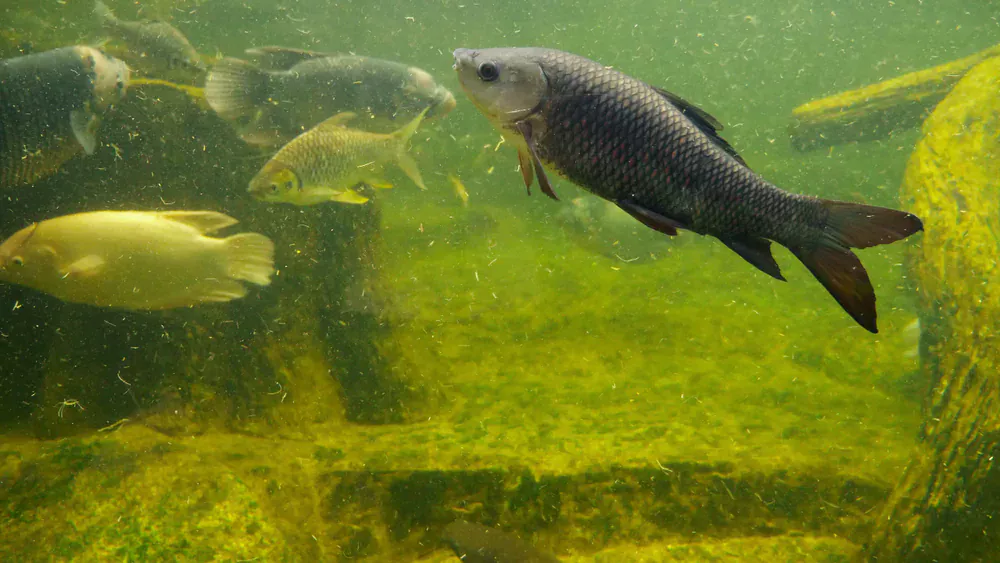So, you’ve been struggling with that fish tank smell for a while and can’t figure out what is causing the smelly fish tank. The really good news is you are not alone. There are a lot of causes for these smelly tanks. It could be a biological issue. It could be a physical issue.
It could be something simple like an algae bloom. Whatever the issue may be, you can get to the bottom of your smelly fish tank with just a little bit of research! Below are a few of the most common reasons for this odorous problem.
But First, let’s address the most basic question:
What Is A Smelly Fish Tank?
The smell of an aquarium can vary depending on the type of fish you have, the aquarium water quality, and other factors.
The first thing you need to know about a smelly fish tank is that it’s not necessarily a sign of something wrong with your tank or your fish.
It’s true that some aquarium fish species produce a strong odor. This is especially true if you have a large number of fish in your tank. For example, tropical discus fish are known for their pungent smell that can permeate the entire room where they are kept.
However, most people who keep fish don’t have these types of problems. The reason why is they understand that the best way to prevent a smelly fish tank is to keep it clean and tidy at all times. If you do this consistently, it will prevent foul odors from developing in your tank!
We will further discuss in this article why fish tank smells bad.
What Causes A Smelly Fish Tank?
Here are a few of the most common reasons for smelly fish tank.
1- Something Is Dead
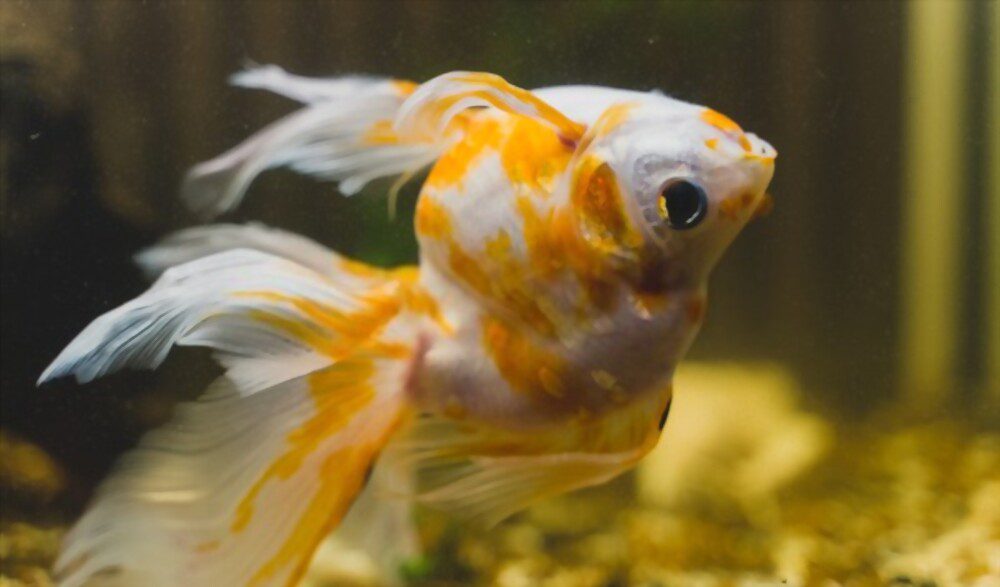
First off, it is almost always a dead fish at the bottom of the tank. This may seem obvious but you would be surprised how many people overlook this possibility. Dead animals in the water or on land smell bad and there is no exception for aquarium fish. If your aquarium smells like rotten eggs, then there is probably a dead fish buried somewhere in it.
2- The Water Level
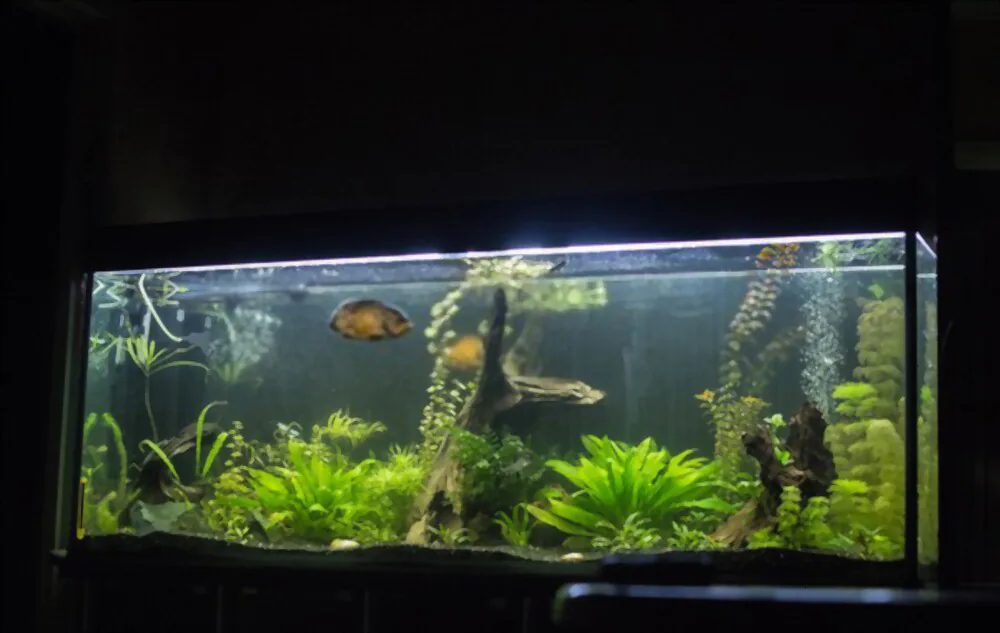
Some people think that if there is no water in the tank then it won’t smell. Wrong! The smell will be contained in the fish food and other filth that gets stuck on the sides of the tank. A good way to avoid this problem is by adding water daily or cleaning out the top layer on a regular basis. But if your tank is really dirty, then you may need to clean it more often than usual.
3- Fish Poop
Fish poop is a common cause of the smelly fish tank. The fish have to eat, and they have to poop. Fish poop is made up of uneaten fish food and waste that has passed through the digestive system. Sometimes, the fish will make more waste than they can eat. This can happen if they are not eating properly, or if their diet is too rich in protein or fat.
It can lead to algae growth in your tank. This is especially true if you keep your tank under lights or with an incandescent bulb. Algae will quickly overgrow certain areas of your aquarium, which can eventually kill off some of your fish.
4- Overfeeding
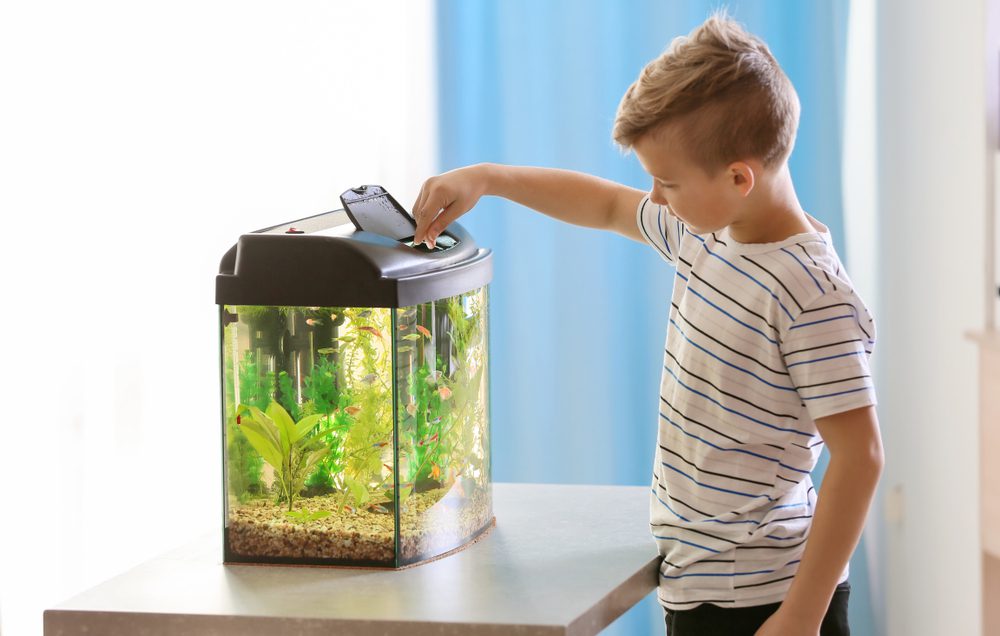
Overfeeding your fish can cause three major problems for your aquarium. First, it can cause your aquarium to become anaerobic, which leads to a bad smell and kills off beneficial bacteria in your filter. Second, overfeeding your fish increases the amount of waste that they produce, which will foul up the aquarium water and decrease its quality.
Finally, if you feed your fish too much food they may not be able to digest it all, which means they will either regurgitate or excrete it back into the water column where it will decompose and create waste products that can harm the other inhabitants of your tank.
5- Decaying Dead Plants
If you want to maintain a healthy aquarium, you need to make sure that it is free from decaying plants and other organic material. If you don’t remove dead plants, they can rot and breed bacteria that will harm your fish. Bacteria also produce ammonia in large quantities that can be harmful to your fish.
This is why it is important to remove dead plants as soon as they die. You should also make sure that there is no decaying organic matter in your tank. This includes dead leaves or any other material that may have fallen into the water.
6- Filthy Filter
The filter is a very important part of the aquarium and should be cleaned regularly. A dirty or clogged filter will cause cloudy aquarium water, which can lead to other problems. If you have an aquarium with a glass top, you will be able to see when the water starts to get cloudy. If it does, then you should backwash your filter immediately. This will help to remove any dirt or debris that may have gotten into the system, but it won’t eliminate all of the impurities in your water.
7- May Be Your Substrate
The substrate is the layer of material that lies beneath the gravel or sand bed. It is not part of the water, but it is important to the overall health of your aquarium.
Substrates can be made up of many different materials, including gravel, sand, clay, and lava rock. While all substrates have their own unique properties and benefits, there are some common causes for bad smells from your substrate.
The most common issue with substrates is anaerobic bacteria growth. If a substrate becomes anaerobic (meaning that there is no oxygen present), then it will begin to smell bad because of bacterial growth. These bacteria produce hydrogen sulfide gas which has an extremely foul odor similar to rotten eggs.
How To Fix Smelly Fish Tank Water?
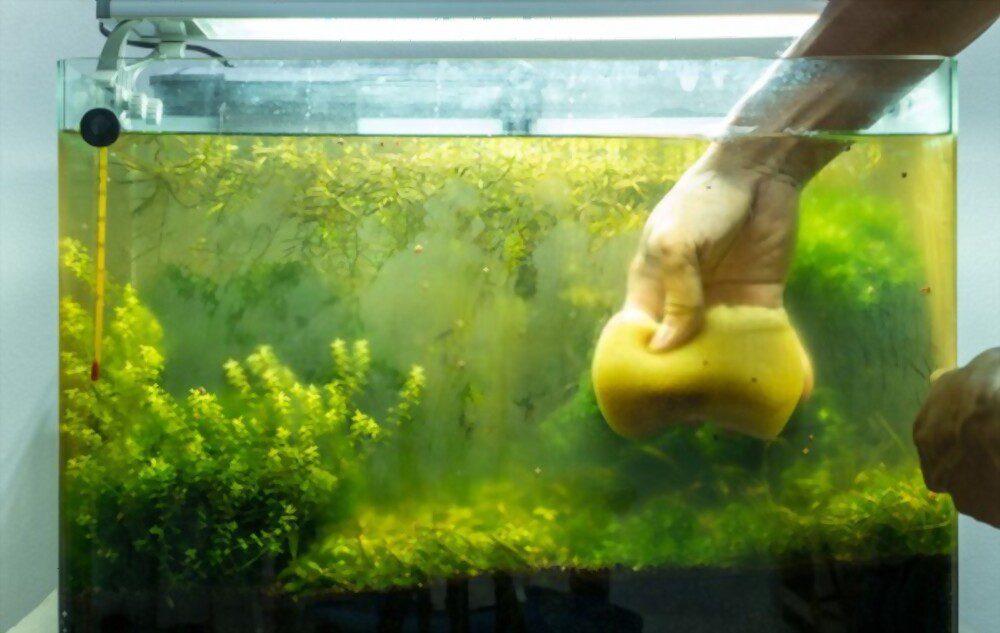
If you have a fish tank, then you know that it can be a great source of entertainment for both kids and adults. The only problem is that these tanks can get pretty smelly if you don’t maintain them properly. But with just a few simple steps, you can keep your tank clean and odor-free.
1- Clean the Filter Regularly
The first step in keeping a fish tank clean is to make sure that you clean the filter regularly. This will remove any particles in the water so that they don’t cause an unpleasant smell or affect your fish negatively.
2- Change out Water Regularly
The next step is to change out the water in your tank regularly. You should do this at least once every week or two, depending on how many fish you have and how often they produce waste! If you have more than one filter, then change out the water in each of them separately so that all of your filters are working properly!
3- Remove Debris
If debris has built up in your tank, then it will start to collect bacteria which will cause an unpleasant odor. Remove this debris by doing a partial water change every week or so (depending on how many fish you have in there). You may also consider using a water conditioner or aquarium salt to help remove any debris from the water column.
4- Add Fish
If your tank has been empty for a while and starts smelling nasty, then try adding some new fish into the mix! Adding new fish to your aquarium will help freshen things up by introducing more oxygen into the fish tank.
5- Use Cleaning Products Sparingly
While some cleaning products may help eliminate odors, they can also be harmful if used too often or too much! Don’t use cleaning products unless absolutely necessary and only use them according to instructions on the package.
6- Use Water Conditioner
Sometimes, even when we think our water is clean, it isn’t! If your water looks cloudy or smells bad, then it may need to be conditioned before being used in your fish tank again. The water conditioner will remove any chlorine or other chemicals in the water so that it can be used safely again.
How To Prevent Smelly Fish Tank?
First and foremost, keep your water clean! This means regular water changes and cleaning the filter. The filter should be cleaned out every two weeks (or more frequently if there is a lot of debris or waste in the tank). Change 25% of the water at least once a month and if you have even one sick fish, change it more often.
Next, make sure the pH levels in your aquarium are stable between 6.5 and 8.0. This can be done by adding some crushed coral into a filter media bag containing peat moss and spagnum moss. Make sure that the crushed coral is not too fine as it will plug up your filters quickly! Also, remember that different species require different pH levels so check with an expert before making any changes to ensure that your fish will still be healthy after making any adjustments to their environment.
Finally, regular maintenance will fix the smelly fish tank issue. It’s important to monitor ammonia levels regularly because they can spike very quickly in crowded tanks or when new fish are added to an established community tank. Test daily until you learn what normal
What If Fish Tank Smells Like Sewage?
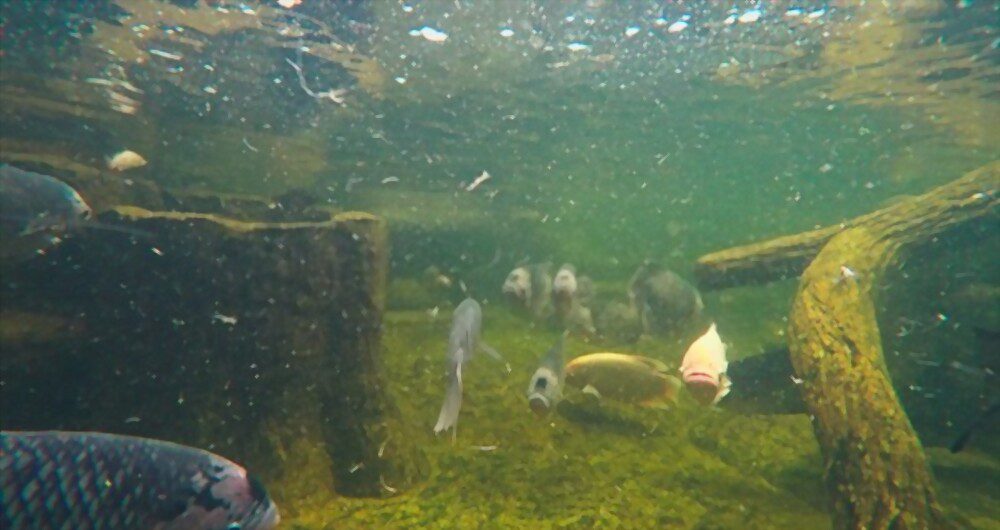
there is a chance that your fish tank might smell like sewage. This problem can be caused by a number of things. It is important to know what the cause is so that you can fix it. Here are some of the most common causes of this issue:
1- Overfeeding Your Fish
If you feed them too much, they will excrete more waste than they need to. This will lead to an accumulation of unwanted bacteria in the water which will then start to smell bad. You should only feed your fish once or twice per day and only what they can eat within five minutes at most. If you notice that they are not getting enough food because it is disappearing too quickly then try feeding them smaller amounts more frequently instead of large amounts less frequently.
2- Improper Water Temperature
Fish require a certain temperature range in order to live comfortably and have healthy skin and gills. If the temperature gets too high or low, they could get sick or die from stress or suffocation if they cannot breathe properly due to damage caused by low oxygen levels or high carbon dioxide levels which occurs when the water becomes too acidic due to increased bacterial activity (as mentioned above).
3- Algae Growth
The algae growth can cause an unpleasant odor in your fish tank. If you have a lot of algae growth, then you should clean it out of your tank as soon as possible. You can use some aquarium de-scaling products to get rid of this problem.
Final Thoughts
We hope that this article has proven useful and that you will apply the tips we’ve provided to keep your aquarium clean. Regardless of your skill level when it comes to maintaining an aquarium, we have laid out a simple routine to help you avoid or fix common issues related to water cleanliness. Give it a try and you’ll have a sparkling clean aquarium in no time!

